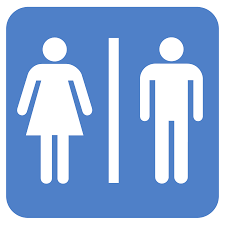 An overactive bladder (OAB) is a very troublesome and embarrassing condition, which leads to sudden urination or frequent urge to urinate. This can be a serious problem at certain moments, and it is unfortunately a lot more common than most people believe. Nearly 33 million Americans suffer from some form of overactive bladder, which means that this is not just some isolated incident.
An overactive bladder (OAB) is a very troublesome and embarrassing condition, which leads to sudden urination or frequent urge to urinate. This can be a serious problem at certain moments, and it is unfortunately a lot more common than most people believe. Nearly 33 million Americans suffer from some form of overactive bladder, which means that this is not just some isolated incident.
There are a large variety of bladder conditions that fall under this larger term of overactive bladder, most of them being incontinence. And due to its incredibly unpredictable nature, people who suffer from overactive bladder (OAB) reduce their social activities, as they may end up in a very awkward an unsettling situation.
Causes of Overactive Bladder
The causes for an overactive bladder (OAB) are a little tricky to pin down, as there are a lot of different variables that can contribute to a lack of bladder control. In some cases, it can be a temporary reaction to what you ate or drank. At other times, it can be a sign for something a little more dangerous and possibly life changing. Some of the causes of an overactive bladder (OAB) are:
- Consuming caffeine, alcohol, or medicine that produces more urine
- Drinking too much water
- Bladder abnormalities or difficulty emptying the bladder
- Urinary tract infections
It is often hard to say what causes an OAB, simply because there are just too many variables in play to determine properly. However, there is a way to find out what is causing it, and that is by looking at some of the symptoms of an OAB.
Symptoms of Overactive Bladder
 Although an OAB is a very serious problem that can drastically change how people live their lives, it is very easy to spot if you have one or not. Under normal circumstances, the kidneys produce urine that goes to your bladder, and when the muscles in the bladder relax the urine releases. That said, in an overactive bladder the muscles contract involuntarily releasing urine at unintended times.
Although an OAB is a very serious problem that can drastically change how people live their lives, it is very easy to spot if you have one or not. Under normal circumstances, the kidneys produce urine that goes to your bladder, and when the muscles in the bladder relax the urine releases. That said, in an overactive bladder the muscles contract involuntarily releasing urine at unintended times.
However, since urine leakage can happen for other reasons than a serious problem, if you experience a little incontinence it does not mean that you have an OAB. But if you experience the following symptoms, then it is possible that you may have an OAB.
- Frequent urination, you may be urinating more than eight time a day
- Loss of urine involuntarily on a regular basis
- Sudden urges or uncontrollable needs to urinate
- Waking up in the middle of the night to urinate frequently
Now since overactive bladder refers to a wide array of different bladder conditions, symptoms can vary from person to person. So without the help of a medical professional, it can be very hard finding out whether or not you really have an overactive bladder.
Conclusion
An overactive bladder is a very disturbing and often awkward condition that greatly affects the lives of people that have it. But since the symptoms for an OAB can be very diverse and misleading, it is very hard to tell whether or not you have the condition. Therefore, before you jump to conclusions about what conditions you have, you should first meet with a urologist that can give you proper medical advice.
You can also visit our website at FifthAvenueUrology.com
FIFTH AVENUE UROLOGY
Dr. Michael Brodherson
Dr. Yaniv Larish
Dr. Leonard Glickman
——–
5 East 83rd Street
New York, NY 10028
——–
212-675-3186

[…] Overactive bladder […]